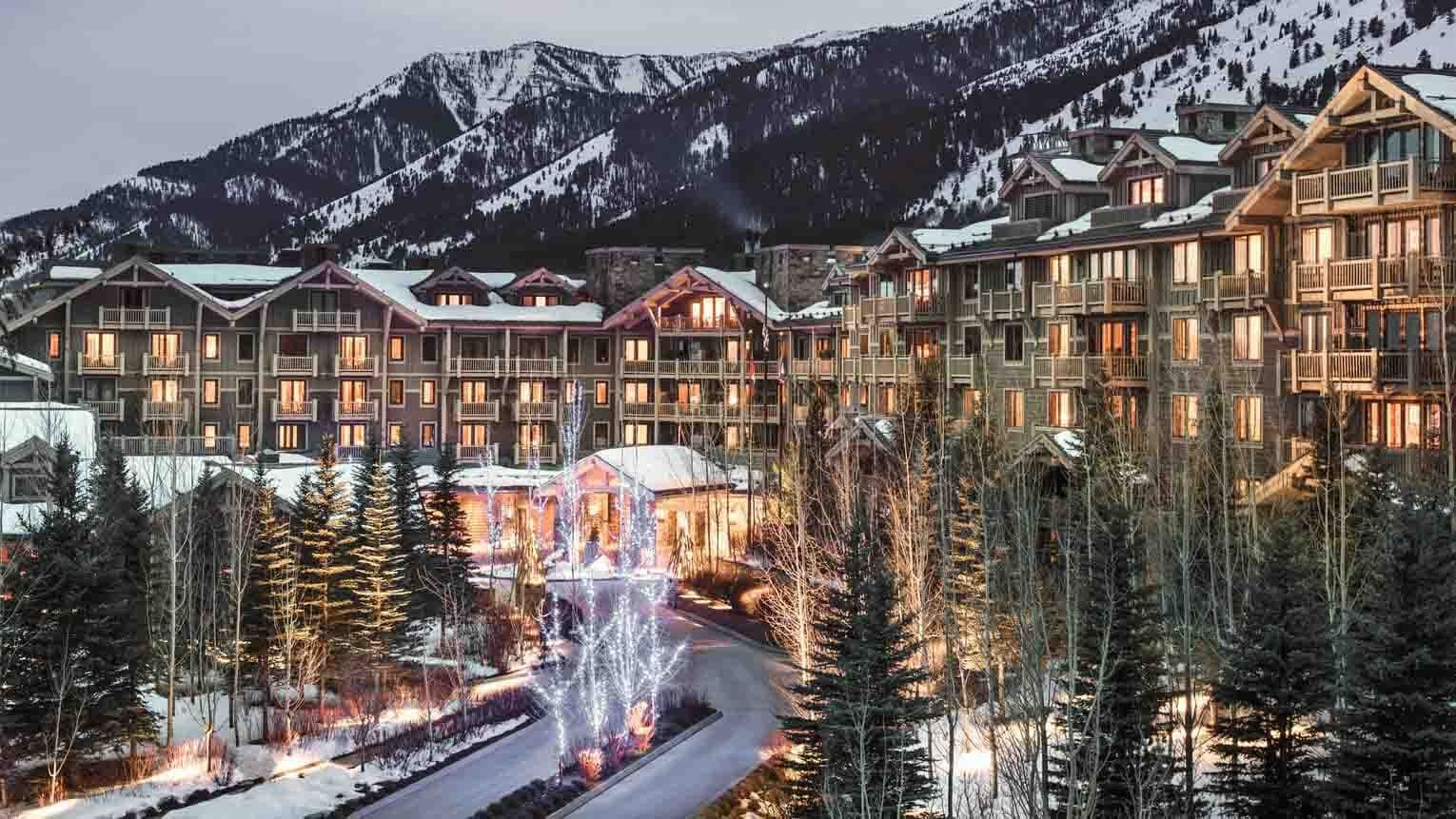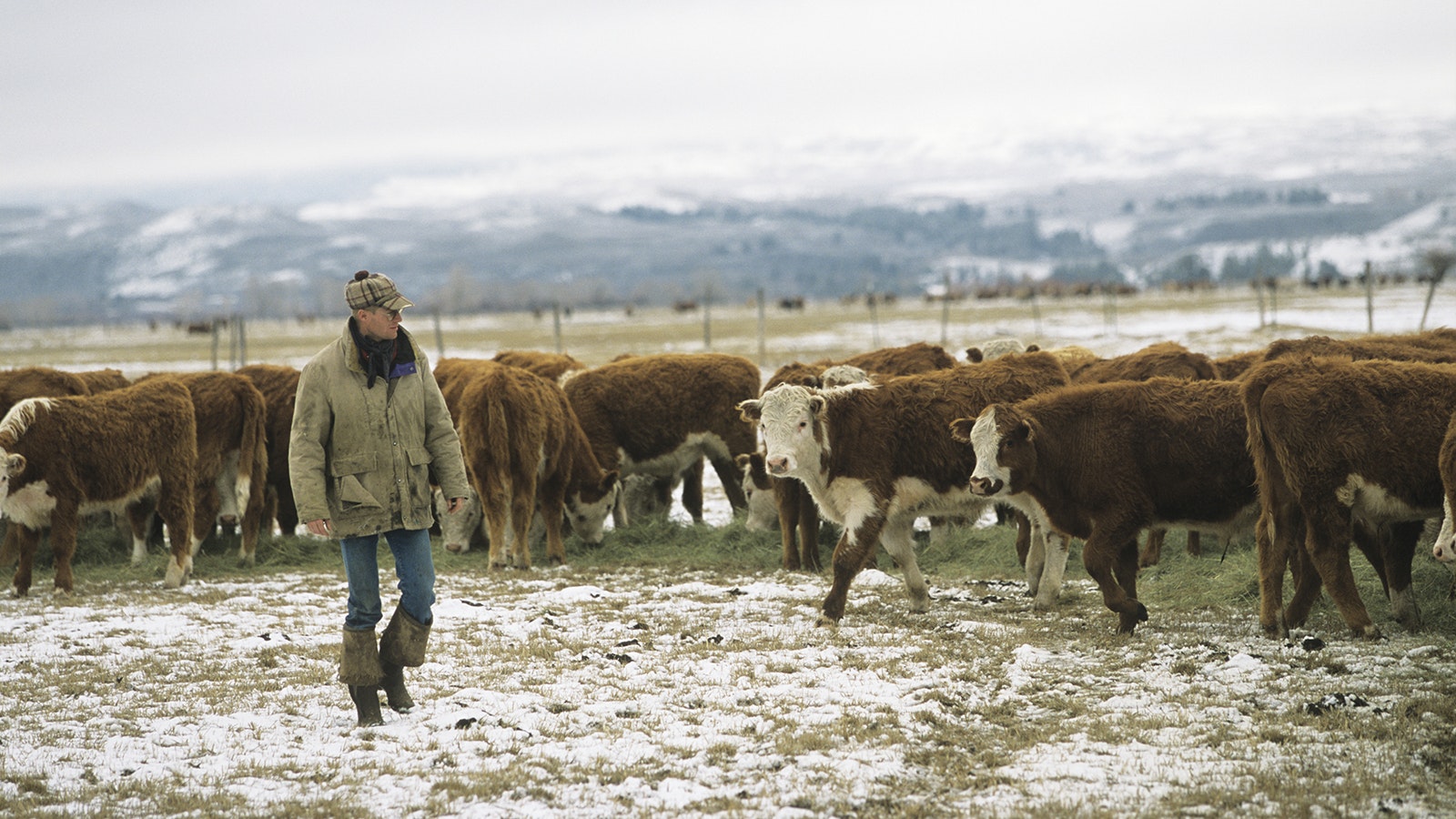THERMOPOLIS — A crowd packed the city’s fire hall Monday night for what’s been a hot topic — the future of Hot Springs State Park — with the one guy who now knows the most about it.
Mark Begich, a former U.S. senator for Alaska, is the owner of Wyoming Hot Springs LLC, the company that the state has chosen to operate all of the park’s amenities.
His specific plans for the park depends on the outcome of a lawsuit between the state and Roland Luehne, the owner of the Star Plunge, the park’s popular hot-springs fed complex of indoor and outdoor pools. The two sides have been embroiled in a legal conflict over several thorny contractual issues.
Opinions during Monday night’s meeting ranged from hot to hopeful.
Begich didn’t bat an eyelash, regardless of which spectrum the questions came from, and regardless of how many questions contained a grain of misinformation.
Things started off hot with a woman, who did not identify herself, chiding Begich for a hot springs facility she assumed he had owned in Nevada called David Walley’s Resort and Hot Springs.
She had worked there, she told Begich. And she watched it change over time, and not for the better. The luxury time-share model was the last straw in her opinion. It completely ruined everything.
“Now the locals can’t even go there,” the woman said.
They drive to a distant location for a hot spring, she said, even though there’s a hot spring in their own community.
Begich had to agree that Walley’s hot springs resort had declined over the years.
“If you’ve never been there, you should have seen it in the heyday,” he told the crowd. “And when they went to timeshares, they did destroy the place.”
But Begich never actually owned that location and had nothing to do with that decision, he told the crowd.
“We looked at it at one time, to buy,” he said. “It went through two foreclosures because it was so badly run. And it’s beautiful, right on the river in Genoa, but they let it go to crap.”
Begich’s facility, he told the woman, is actually in Carson City, and he sees the locals as its most important customers.
“We’d be happy to show you our local clientele there,” he said. “It’s the bread and butter of our facility. I would say 80% of our business is local in Carson City.”
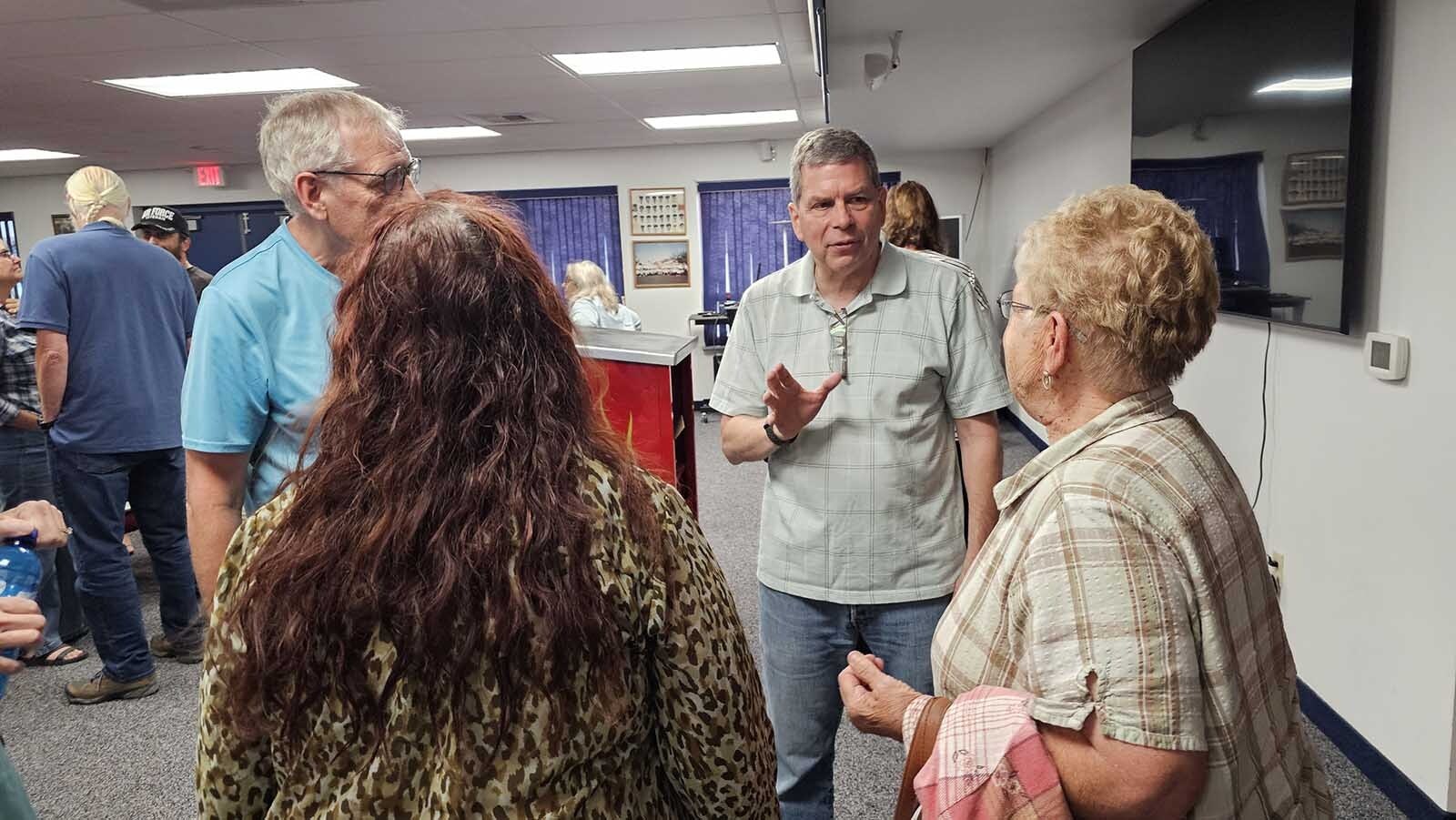
Don’t Jackson Hole Thermopolis
The trend the woman described at Walley’s is exactly the kind of trend that worries Thermopolis resident Kristen Hohman.
She still remembers when lawmakers came to town in 2019 and one of them talked about turning Thermopolis into the next Jackson.
“That’s in a newspaper article,” she told Cowboy State Daily after the meeting. “It’s a direct quote.”
Marketing materials for Hot Springs State Park have at times even described the area as an off-the-beaten-path Yellowstone. A place much less crowded, but with many of the same features. Including bison in the park.
Fears about Thermopolis becoming like Jackson Hole are part of what Hohman said has so many people in town on the “hot” end of the spectrum when it comes to proposed changes at the park.
The locals want things to remain affordable for those who already live and work there.
They don’t want to contemplate a future where regular people who work in the community are commuting long distance every day to get to their jobs.
Tell Me Your Ideas
Keeping things good for locals is something Begich stressed over and over again, throughout the multi-hour meet and greet in Thermopolis.
He posted a board at the back of the meeting room with his proposal and a pad of sticky notes. Throughout the meeting, he referenced that board and invited community members to write their thoughts and ideas on sticky notes and tack them onto his proposal.
Going into things, Begich said he knows it will be important to have a pricing model that works for both his facility and for the people who live in the neighborhood.
“For the locals in all our communities we have all kinds of pricing, local pricing, senior pricing bathroom pricing, you name it,” he said. “We have to do that because there are groups we want to make sure are taken care of.”
That’s going to include school and education groups that already have deals with the amenities in the park, Begich said.
He also believes it will be key to examine the hydrology of the area and get on top of what’s happening with the spring.
“The water is the resource,” he said. “If you don’t manage that well, it goes away over time.”
Because of that, he’s gone high-tech on the plumbing side of things at his other hot springs facilities in Nevada and New Mexico and anticipates doing that in Thermopolis as well.
“It’s very expensive, but it’s worth it,” he said. “Because then you’re not wondering, is the spring going to get filled today? Is there enough water? Is it hot enough?”

Keeping It Local
Begich said he also believes in using local resources whenever possible, so the benefit to the community is maximized.
That’s a role that will fall more to Begich’s manager, Keith Shellhamer, who handles the operational end of things.
“My goal in every project has been the same,” Shellhamer said. “We keep everybody local in the community. We try to keep everybody’s positions that they’re in when we come along and keep all the dollars here. There’s no one from outside that’s going to roll into town. That’s never happened before.”
Shellhamer has been handling the operations end of Begich’s many projects for a long time, he added. That includes the 252-room Holiday Inn in downtown Anchorage, Alaska, that Begich saved.
“We specialize in properties that are pretty much done with their economic life,” Begich said. “They have fallen apart. They’re deteriorating. The owners have neglected them, or pick the reason, they’re just bad properties.”
The Anchorage Hotel had been vacant for about three years, Begich said.
There were those who said just tear it down and start fresh.
That might have been more economic on paper. But Begich sees things differently.
“We probably would have put about 11.5 tons of concrete in the landfill,” he said.
So, he doesn’t always just tear things down and start fresh. He first looks at how much he can save.
“The (hot springs) in Carson City, Nevada was built in 1860,” he said. “You go there today, and those buildings are still there. We have rehabilitated them.”
That’s despite the mayor suggesting at first that the entire area should just be razed to the ground.
“Well let’s think about this first,” Begich said he told the mayor. “Because it has a lot of history.”
Ripple Effects
The Jemez Hot Spring in New Mexico was a similar situation. Historical, 1860s buildings, but in a much smaller community of just 400 people.
Begich faced a lot of the same questions there that he’s facing in Thermopolis.
“When we went there, to be frank with you, they weren’t sure who we were,” he said. “We’re from Anchorage, Alaska. Who are these people? Why are they coming up here? Some former politician, what’s his game here?”
Begich made a commitment to be involved in the community in every possible way.
In Carson City, that led to sending towels to the local veterans’ home on a regular basis. The towels were still in great shape but not at the quality Begich requires for customers.
“In Jemez, the local shelter utilizes all of our surplus property, as well as stuff people read. After a certain period of time, they come and select what they want for the shelter,” Begich said. “So, we try to engage as much as possible in communities.”
Jemez, Begich added, is still a small, quaint community.
“If you blink your eye, you literally fly right through it, and you don’t even know you were there. But it’s now a community that we put in workforce housing because it’s hard to keep people working in a place that has unaffordable housing. So, we figured out a way to do that with some of the old buildings we had.”
Affordable housing is a need Begich already sees as a need in Thermopolis, and something he’s planning for, he told Cowboy State Daily on Tuesday in a separate interview.
“If we have to fight the city over that, we’re willing to do that,” he said. “Because it’s not fair, if you want economic development, to say, ‘Oh by the way, no one can live here.’”
Shellhamer’s Recommendation
Begich found out about the Hot Springs State Park after his people bumped into some of the state’s people at a Hot Springs Association conference.
Shellhamer was dispatched to look the project over after Wyoming put out a request for information, seeking someone who could revamp the project.
His recommendation was negative.
“My job is to be the bad guy and say, ‘Hey, here’s the problems,’” he said. “And I throw those at him and then he decides.”
Begich’s lens is much different. He wants to know all the problems to feasibility. But he’s also looking at whether the bottom line of the completed project will benefit the community.
That led him to put in an offer on Hellie’s TePee Pools and Spa, as a start, and ultimately an entire RFP for all of the amenities in the park.
Packaging them together makes sense, Begich said. It’s what makes the project pencil out.
“If you just have one it’s hard,” he said. “And I think the state figured this out after many years. You’ve got to get them all together, package them together.”
So far, the package hasn’t been able to come together because of the dispute between the state and Luehne, Begich acknowledged.
That means some of his decisions are in limbo. What he ultimately does at the various amenities will depend on whether Star Plunge is in the package or not.
Begich did meet Tuesday morning with Luehne to discuss the situation.
The outcome was not known at the time of this article’s posting. Shellhamer did not immediately respond to a text message inquiring whether any deals were reached.
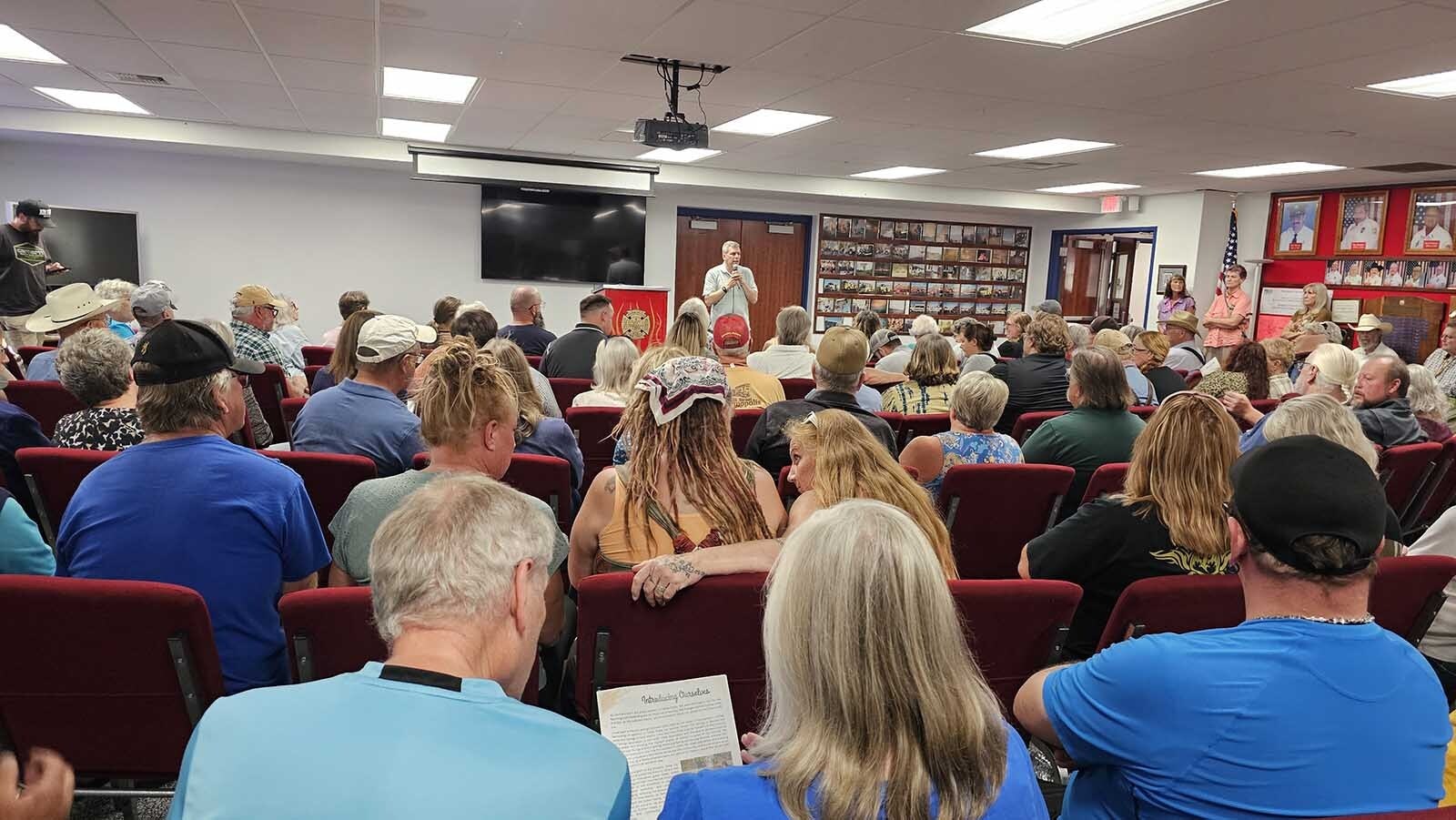
Many Silent Supporters
Phil Scheel, the co-owner and CEO of Tumbleweed Propane, was among those on the optimistic spectrum of the meeting Monday night.
“I really appreciate the time that you spent here with us tonight,” he told Begich toward the end of the meeting. “We’ve been hearing about this in our community for almost two years now. ‘What’s going on? What’s going on? This outside guy that we haven’t met is here, to spend a lot of money in our community.’”
It’s a point Scheel wishes those on the “hot” end of the spectrum would think a little more about.
“I don’t know anyone outside of Hot Springs County in the past 50 years who has decided to make an investment of more than $10 million into our community,” he said. “And all we have to do is whine and complain about his other projects.”
The room erupted in applause as Scheel was speaking, drowning out the rest of what he had to say about those complaints.
“I really appreciate you being here,” Scheel said when the noise died down. “Please continue to do your good work. Work with the good people of Hot Springs State Park. The Wyoming Legislature has been working with you for a long time. You have support from a lot of us in Hot Springs County.”
Hydrology Will Be Explored To Explain Lack Of Water
Jason Owens identified himself as one of Begich’s favorite users, because he buys an annual pass but then forgets to use it quite often.
He said he has personally been happy with the changes so far at the TePee Pools.
“I’ve seen lots of improvements,” he said. “I know that it ain’t all going to happen overnight.”
He has a fear about the hot springs and its future. That fear isn’t about what Begich will do to the hot spring. Rather, it’s about something he’s noticed over the years.
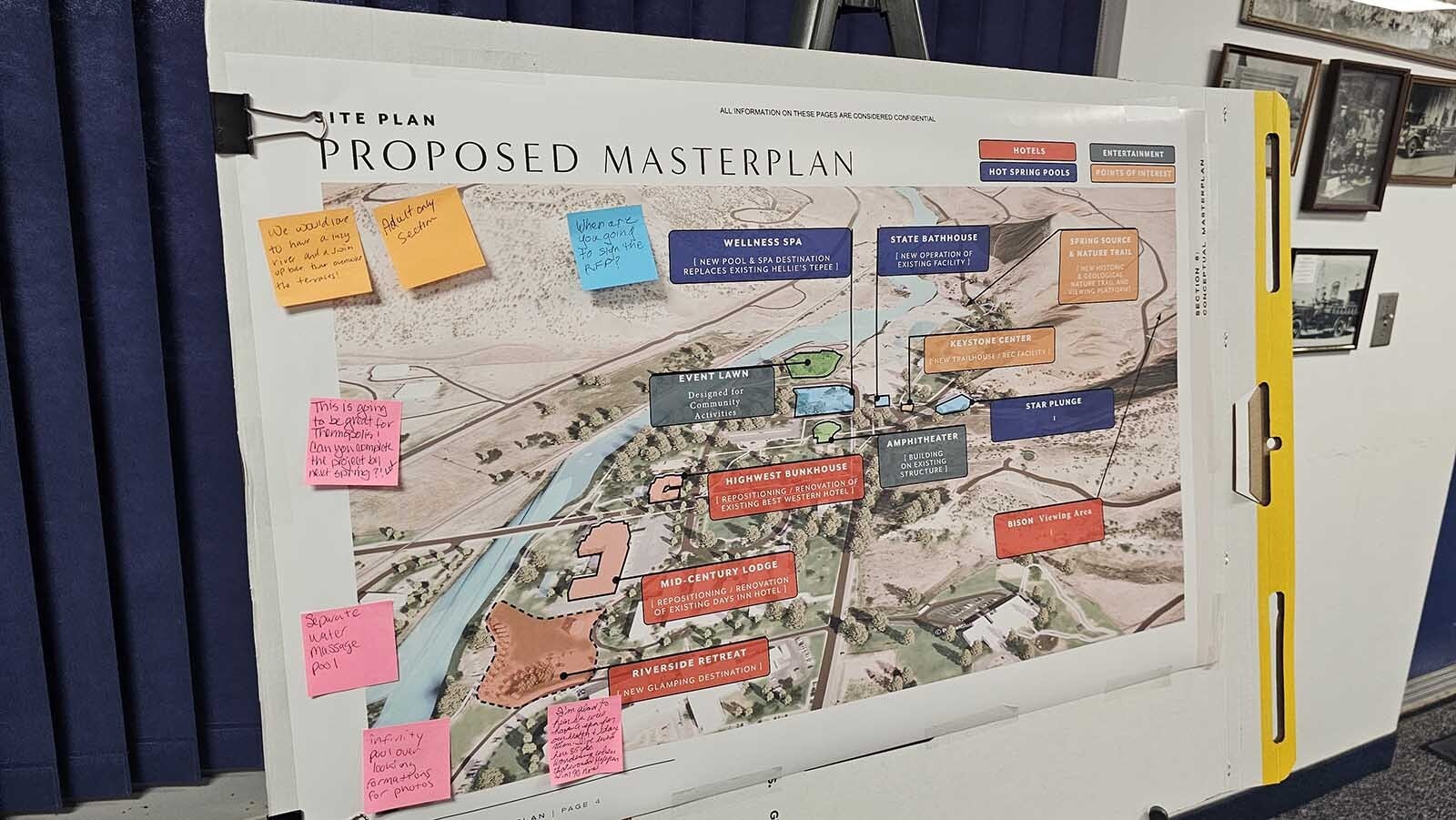
“If you look at the water in general, the spring has reduced,” he said. “If you look at all the springs in the park that used to be there years and years ago, they’ve all dried up. Hopefully, there’s a way to correct some of that. Hopefully, you can bring that flow back over the terraces.”
Begich said hydrology will be one of the first things he looks at, to see what the situation is and what’s needed to protect the resource for future generations.
Affordable Housing Is Also Key
Begich has driven through various communities on his way to Thermopmolis because he wants to get to know and understand the state better. He does that by choosing a different airport each trip and then driving to the community from that new location.
Jackson was among the first communities he chose to fly into.
“It’s a tough drive, but it was scenic and beautiful,” he said. “But when I was in Jackson, I said, ‘Oh my God, what has happened to this place?’ I had been there many, many, many years ago and that was my first time back.”
Jacksonizing Thermopolis is something Begich himself wants to avoid.
“Everyone has their vision, but the vision for us has to be ‘How does this work with the community?’” he said.
Affordable housing for workers will be a key component, he believes.
That’s likely going to mean seeking federal grants to help keep costs down on the project.
“Our knowledge — even though I’ll get criticized about politics — my knowledge in that area helps,” Begich said. “There are federal grants, federal tax benefits. So, let’s find a developer who wants to do our local, 15, 20 units of not slums but workforce housing. People trying to make a living working at Walmart, working at Pizza Hut, whatever, and they just want to be able to afford to have their own place.”
Dealing with that is part of dealing with the ripple effects of economic development, Begich said, and it’s something that he sees as being part of his responsibility.
The other part, though, he added, is the vision that the city has for itself.
“In Carson City, they had a vision plan, and we reviewed that,” he said. “That helps people like us say, ‘OK, we hear where you want to go.’ And no plan is perfect, but (Thermopolis) actually did one.”
Many communities don’t do one, Begich said, and then are surprised by where they end up in 20 years.
“Because you didn’t think 20 years out, you didn’t say that’s going to be green space, that’s going to be public space, that’s where we’re going to have some multi-family,” he said. “This is your developer, and you’re building 50 units, and 20% has to be affordable. They didn’t think of that.”
Renée Jean can be reached at renee@cowboystatedaily.com.



